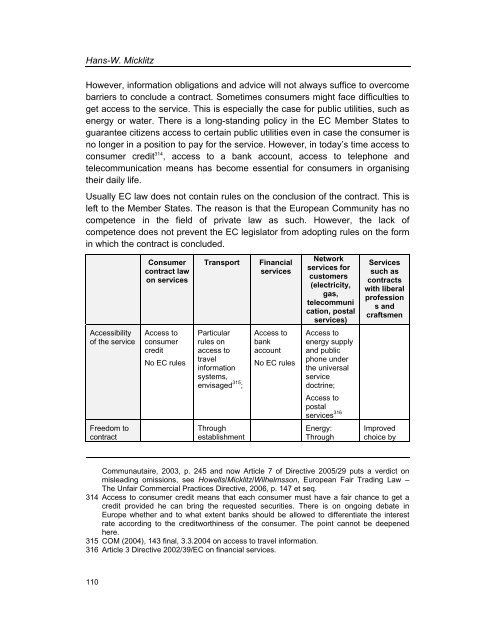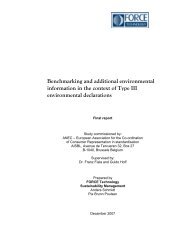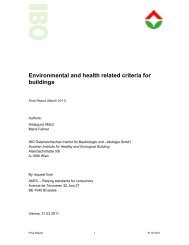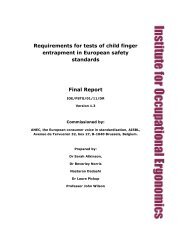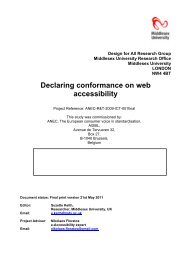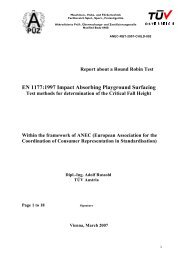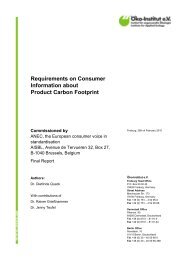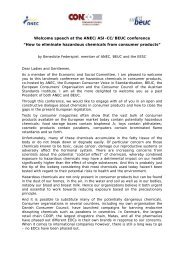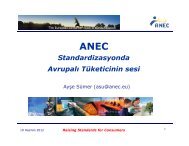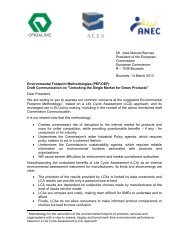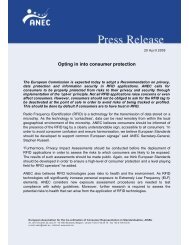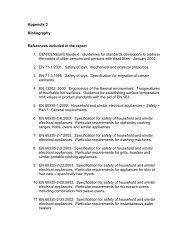Services Standards: Defining the Core Consumer Elements ... - ANEC
Services Standards: Defining the Core Consumer Elements ... - ANEC
Services Standards: Defining the Core Consumer Elements ... - ANEC
Create successful ePaper yourself
Turn your PDF publications into a flip-book with our unique Google optimized e-Paper software.
Hans-W. Micklitz<br />
However, information obligations and advice will not always suffice to overcome<br />
barriers to conclude a contract. Sometimes consumers might face difficulties to<br />
get access to <strong>the</strong> service. This is especially <strong>the</strong> case for public utilities, such as<br />
energy or water. There is a long-standing policy in <strong>the</strong> EC Member States to<br />
guarantee citizens access to certain public utilities even in case <strong>the</strong> consumer is<br />
no longer in a position to pay for <strong>the</strong> service. However, in today’s time access to<br />
consumer credit 314 , access to a bank account, access to telephone and<br />
telecommunication means has become essential for consumers in organising<br />
<strong>the</strong>ir daily life.<br />
Usually EC law does not contain rules on <strong>the</strong> conclusion of <strong>the</strong> contract. This is<br />
left to <strong>the</strong> Member States. The reason is that <strong>the</strong> European Community has no<br />
competence in <strong>the</strong> field of private law as such. However, <strong>the</strong> lack of<br />
competence does not prevent <strong>the</strong> EC legislator from adopting rules on <strong>the</strong> form<br />
in which <strong>the</strong> contract is concluded.<br />
Accessibility<br />
of <strong>the</strong> service<br />
Freedom to<br />
contract<br />
<strong>Consumer</strong><br />
contract law<br />
on services<br />
Access to<br />
consumer<br />
credit<br />
No EC rules<br />
Transport<br />
Particular<br />
rules on<br />
access to<br />
travel<br />
information<br />
systems,<br />
envisaged 315 ;<br />
Through<br />
establishment<br />
Financial<br />
services<br />
Access to<br />
bank<br />
account<br />
No EC rules<br />
Network<br />
services for<br />
customers<br />
(electricity,<br />
gas,<br />
telecommuni<br />
cation, postal<br />
services)<br />
Access to<br />
energy supply<br />
and public<br />
phone under<br />
<strong>the</strong> universal<br />
service<br />
doctrine;<br />
Access to<br />
postal<br />
services 316<br />
Energy:<br />
Through<br />
<strong>Services</strong><br />
such as<br />
contracts<br />
with liberal<br />
profession<br />
s and<br />
craftsmen<br />
Improved<br />
choice by<br />
Communautaire, 2003, p. 245 and now Article 7 of Directive 2005/29 puts a verdict on<br />
misleading omissions, see Howells/Micklitz/Wilhelmsson, European Fair Trading Law –<br />
The Unfair Commercial Practices Directive, 2006, p. 147 et seq.<br />
314 Access to consumer credit means that each consumer must have a fair chance to get a<br />
credit provided he can bring <strong>the</strong> requested securities. There is on ongoing debate in<br />
Europe whe<strong>the</strong>r and to what extent banks should be allowed to differentiate <strong>the</strong> interest<br />
rate according to <strong>the</strong> creditworthiness of <strong>the</strong> consumer. The point cannot be deepened<br />
here.<br />
315 COM (2004), 143 final, 3.3.2004 on access to travel information.<br />
316 Article 3 Directive 2002/39/EC on financial services.<br />
110


